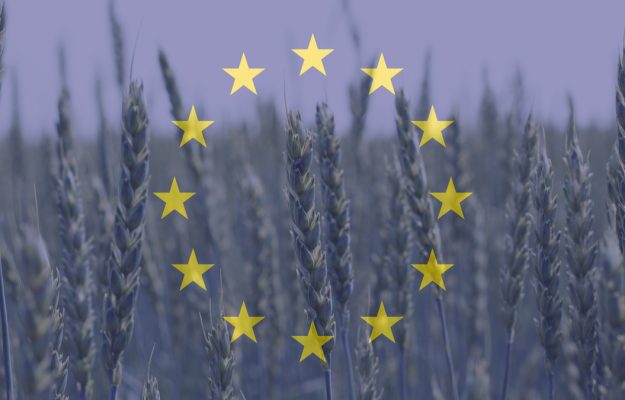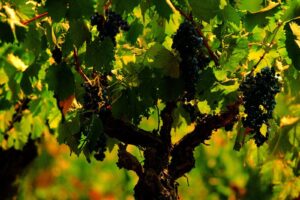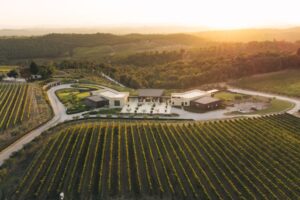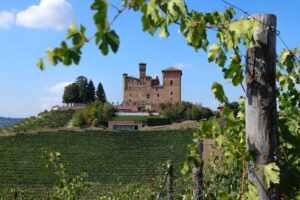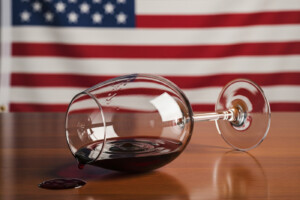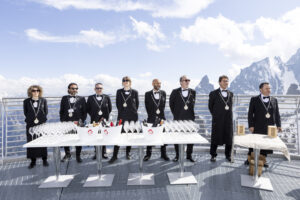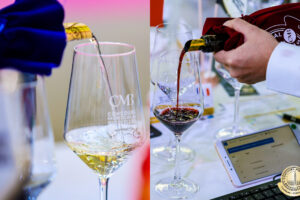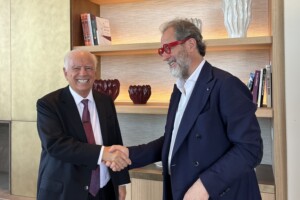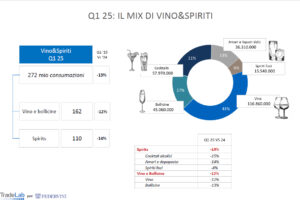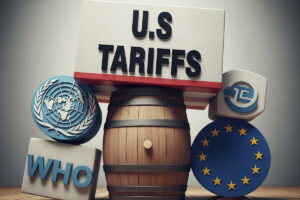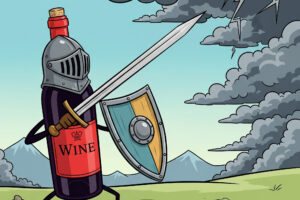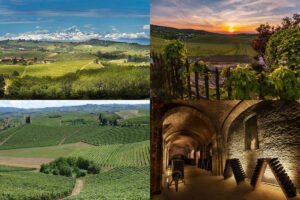A few hours after the elections that formed the new EU Parliament, Italian agriculture is making its voice heard. Because the completion of the reform of the CAP, which is worth 40% of the EU budget, and which will develop the European regulatory framework in which agriculture will move between 2021 and 2028, is an absolute priority. And there are many dossiers that are still open: from the one on the budget (which provides for cuts to the CAP that, for Italy, would mean more than 3 billion euros less) to the issue of measures on “greening” and sustainability, and not only. On the cuts, the vice-premier, and leader of the League, who emerged from the polls as the first Italian party, and the Minister of Agriculture Centinaio, promise battle: “I, as Minister of Agriculture - said Centinaio - will be in the front line on two crucial dossiers. The labeling, with which we ask that the indication should be respected on the basis of which the products made in Italy are grown, fished, reared and produced in our country. And the Common Agricultural Policy, or rather the funds that Europe assigns to the Member States to develop agriculture. The cut of 3.4 billion against Italy is unacceptable”. A cut on which, of course, all the agricultural organizations are firmly opposed. But the declarations by Salvini himself have come to spark the desires of Italian agriculture, which, in the process of redefining the European Commission and sector commissions, has announced that Italy will request one with a “portfolio”, including just that agriculture. The goal is far from easy, first of all, because, despite the success of the League in Italy and other sovereign forces in Europe, these still represent a minority share in the European Parliament, which will not elect the president of the Commission before July, and then the various commissioners, not before October.
Meanwhile, at least until July 2, the Agriculture Commission of the EU Parliament will be led by Paolo De Castro (re-elected with the PD), current first vice president, who will be the acting president as a result of the non-election of the outgoing president, the Polish Adam Siekierski (and who will lead the informal council of Ministers of Agriculture scheduled in the coming days in Bucharest, ed). His presence, as well as the reconfirmation of Herbert Dorfmann (Südtiroler Volkspartei), gives hope, confirms De Castro to WineNews, confirming the continuity of existence of the “Intergroup Wine”, an informal body, but fundamental to the demands of the supply chain. Among the Italian MEPs elected, directly involved in agriculture, to report also Marco Zullo.
In the meantime, today the great changes begin, with the informal meeting of the Heads of State and Government in Brussels, where the first “polls” and negotiations will probably start.
While Coldiretti immediately approved Salvini’s words on the possible request of the Commissioner for Agriculture for Italy, Confagricoltura’s position also arrived: “If only the figures and the quality of our sector system were relevant - said President Massimiliano Giansanti - there should be no major obstacles to the appointment of an Italian to be the next European Commissioner for Agriculture and Rural Development. There is still a long way. The new Commission will take office on 1 November, but the negotiations have actually already begun and it would be useful to indicate clearly what Italy’s expectations are. As an alternative to the agricultural sector, we should focus on an economic scenario, because the future of the European project will be determined by the revival of the economy, investment, and employment. It should also be mentioned that the outgoing Italian Commissioner, Mogherini, also holds the position of Vice-President of the Brussels Executive”.
Clearly, in the thoughts of Confagricoltura, there is the CAP, and the hope is that it will continue “to ensure food security and strengthen the role of the sector in the protection and conservation of natural resources”. The new assembly is facing important challenges for Europe, - continues Giansanti - for us farmers the EU has on the table above all the reform of the CAP, crucial and urgent for our agriculture, however, as entrepreneurs working in a common market, we ask for reciprocal European rules, starting with the tax system, which today oppresses Italian companies and penalizes them compared to other countries. Standardization must also include labor costs and environmental practices in order to build a more competitive Europe at international level. To do so, we must have a more courageous and far-sighted Italy in the reforms, capable of being a protagonist in this battle. We are therefore alongside our parliamentarians who share these needs and intend to address them quickly”.
“Italian farmers are waiting for answers from the next legislature - said the president of Cia-Agricoltori Italini, Dino Scanavino - starting from maintaining the current level of CAP spending until the acceleration of the post-2020 reform, in terms of simplification and innovation, with a European project of governance of internal areas and new free trade agreements that support Italian exports and protect sensitive products from unregulated imports. These are the main axes of intervention on which to plan the Europe we want, in respect of which we ask the Italian members of the new legislature for their full cooperation because the relaunch of the process of integration of the Union and also the future of agriculture will depend on the new Community policies”. The CIA recalls that this is a structural sector for Italy: “in the last decade alone, the number of workers in the sector has increased by 21%, while in the organic sector there has been a 60% increase that has benefited the entire Made in Italy agri-food sector, without forgetting how the European driving force has given life to exports (+40%), driven by the diamond point of quality certifications, which have reached 299 between PDO and PGI”.
“It is almost 50 years that in the European Commission the responsibility of the primary sector is not assigned to Italy, which is the first EU country for agricultural added value but also for the quality of production”, relaunches the president of Coldiretti Ettore Prandini. “National agriculture is the greenest in Europe with Italy which - specifies Prandini - is the only country in the world with 5,155 traditional food products surveyed, 297 DOP/IGP specialties recognized at EU level and 415 DOC/DOCG wines, but it is also the leader in Europe with almost 60,000 organic farms and has made the choice to ban GM crops and meat hormones to protect biodiversity and food safety. It is precisely on this point that Italy can act as a forerunner in Europe on the transparency of information to consumers, extending to all products the obligation to indicate the origin of food on the label and to make it possible to know where the wheat used in the pasta, the milk used in the cheeses or the tomato in the sauce comes from. Italy - denounces Prandini - thanks to the pressure of Coldiretti is at the forefront in Europe for the transparency of information on food labels but this record is likely to be overturned by the entry into force in April 2020 of European rules highly misleading to consumers. An Italian Commissioner would also occupy a key position in European policies with agriculture being the most integrated sector in the Union and therefore the most important item in the Community budget, but - concludes Mr Prandini - it is also strategic in trade agreements where it is also necessary for all products entering national and European borders to respect the same path of quality as regards the environment, work, and health”.
Copyright © 2000/2025
Contatti: info@winenews.it
Seguici anche su Twitter: @WineNewsIt
Seguici anche su Facebook: @winenewsit
Questo articolo è tratto dall'archivio di WineNews - Tutti i diritti riservati - Copyright © 2000/2025










